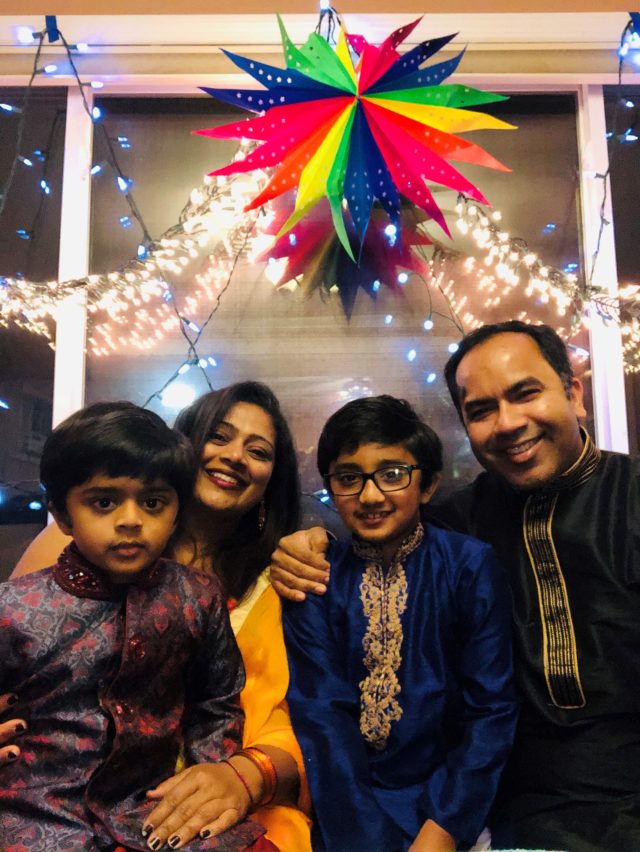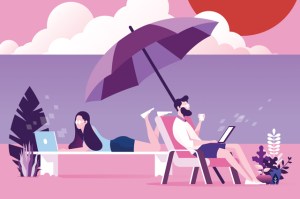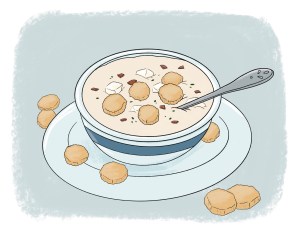I came to the U.S. from India when I was 9 and for my parents, the decision was largely driven by education.
My father looked at what it would take to put me and my three siblings through college in India, based on the salary of his government job. And he knew that if he stayed in India, he would come up short.
He thought, if I go to the U.S., there will be better opportunities for my career, and for my children to get educated. Otherwise, he’d have been forced to make the painful choice of which of us went to college and which didn’t.
My father had a degree in horticulture and at the time, there weren’t a lot of people in America with his expertise. So he always worked. But that doesn’t mean anything came easily for him or my mom. Or their four children for that matter.
To say that the move from New Delhi, India, to Queens, N.Y., was a culture shock would be a huge understatement.
I didn’t speak the language. I looked different than most of the people in my class – in my entire graduating class, I could count the number of brown people on one hand. There weren’t any Asian-Americans that looked like me.
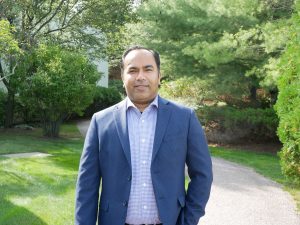
If you wanted anything Indian, there were two shops on Main Street in Flushing, Queens, that were your only go-tos back then. Now there are dozens!
So as a child of the 1980s, my goal was just to quickly fit in, to adopt the American holidays and assimilate. Basically, I didn’t want to stand out.
It may sound odd but when I was growing up my parents never really celebrated Indian holidays with us.
My father and mother worked all time, six or seven days a week; my mother had never worked like that until she came to America. And my siblings and I all started working the moment we were old enough to do so because we understood that everybody had to chip in. College is expensive.
There were no family vacations or traveling to fancy destinations; everybody worked. My father was 15 and my mother was 12 when they were married, and my mother didn’t have much education. They never really had a childhood themselves.
So for them, the goal from day one was our education. No matter how hard they had to work to make it a reality, they would see all four of their children through college.
And college is where my culture opened up to me. I didn’t start to own my heritage until I was an undergrad at Baruch College, studying for my bachelor’s in business administration. In every class, I met people from all over the world, all ages, all of this cultural diversity. I remember reading that there were more than 150 different nationalities represented by the student body there. It was a real wake-up moment.
I wound up taking an Indian history course as an undergrad because I wanted to educate myself about the culture I’d been disconnected from since my early years. And it was around then that I traveled back to India for the first time, reconnecting with my extended family. Soon after returning from that that trip, I met my wife who had emigrated from India much later in life and helped me learn so much more about my heritage.
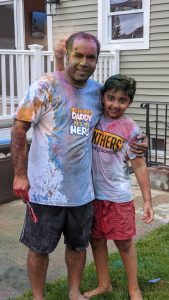
The last year has been another type of wake-up call for me, as anti-Asian sentiments entered the national stage. It’s not as though this kind of discrimination is a new thing. I faced it growing up. And there are times — like explaining to my 10-year-old son why a group of teenagers called him a derogatory name because of the color of his skin — that make you think, ‘Maybe things haven’t changed that much.’”
But in other ways, things have changed a lot. Today, I love introducing my children to our culture. We recently celebrated Holi, an ancient Hindu springtime festival characterized by people throwing colored chalk on each other, and they loved it and wanted to know all about it.
Now, when an Indian holiday comes, we’ll take the day off, make sure we dress up and exchange gifts. It gets them curious, and that’s how you discover your heritage.
And now that my parents are retired, they love nothing more than spending time with their grandkids, especially during all of those holidays that they never had a chance to celebrate once upon a time.
Rahul Chand is vice president of membership marketing at AAA Northeast.



